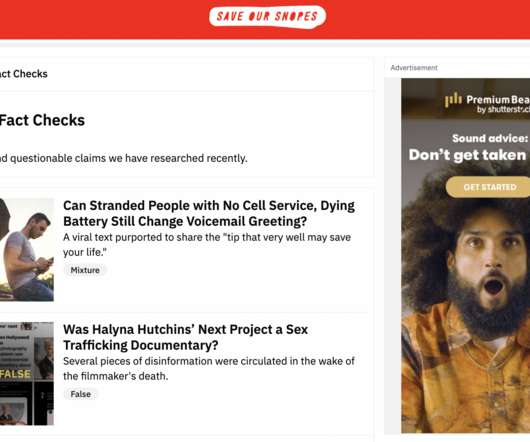The Most Underrated Skill in Content Marketing? Fact-Checking
Contently - Strategy
NOVEMBER 3, 2021
In traditional journalism, diligent fact-checking is a given. This type of work is not journalism, strictly speaking. Do I need to parse the fine print of a scientific study every time I cite a statistic? There are a few standard “rules” to citing sources, too: First and foremost, never rely on Wikipedia.













Let's personalize your content